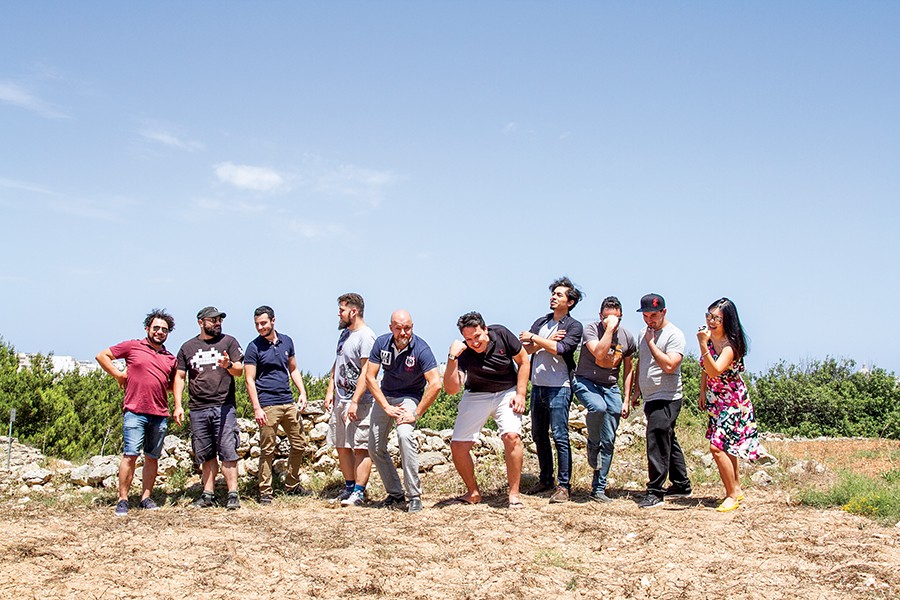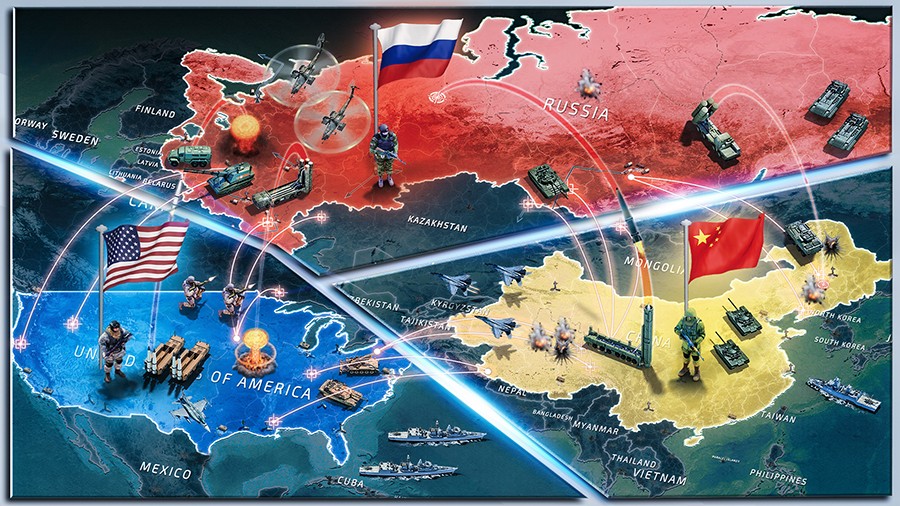Mind the Gap
The world is changing. Technologies are developing rapidly as research feeds the accelerating progress of civilisation. As a result, the job market is reacting and evolving. The question is: Are people adapting fast enough to keep up? Words by Giulia Buhagiar and Cassi Camilleri.
Mur studja ha tilħaq.’ (Study for a successful future.)
From an early age, most Maltese students are conditioned to think this way. You need a ‘proper education’ to land yourself a ‘good job’. But students graduate, and with freshly printed degrees in hand, they head into the job market only to be disappointed when the role they land seems unrelated to their degree. Yet vacancies are ready for the taking; there are many unfilled jobs in the STEM fields, which create 26% of all new vacancies according to recent research from the National Statistics Office.
So, if there are vacancies available, what is the problem? A skills gap.

Academic qualifications do not guarantee that graduates have the right skills for work. At a conference addressing the skills gap organised by the Malta University Holding Company (MUHC) and the Malta Business Bureau (MBB), Altaro Software co-founder and CEO David Vella confirmed this problem. In previous years, Altaro mostly employed experienced developers; however, increased demand led them to realise that there weren’t enough of these candidates out there for them.
To fill those roles, they extended the call to younger people, but Vella found that they were not fully equipped and ready to go. This was when he realised that they needed to change tactics. ‘Now we realise that we need to start hiring junior people and build up their skills.’ Investment needs to be made by both sides.’
What every relationship needs
Better communication between business and academia could improve the skills gap. However, this kind of engagement is easier to manage in some institutions and industries than others, and bringing those worlds together poses many challenges. At the same conference, MUHC CEO Joe Azzopardi noted how start-ups and small businesses often do not have the resources to organise such exchanges. The wall between them and students is a difficult one to get over. However, there is a new initiative seeking to remedy this situation.
Go&Learn is a project bridging education and industry through an online platform that effectively catalogues training seminars and company visits in a multitude of sectors, for students and educators alike. The initiative has garnered a slew of supporters. Sixty companies from all over the world are listed on the site, including some local names: Thought3D, ZAAR, and Contribute Water, to name a few. This year was Go&Learn’s third edition, and with 17 European regions from across 10 countries involved, it focused on the STEM fields. In Malta, the team behind Go&Learn, also a collaboration between MUHC and the MBB, have worked together to create two new programmes.
One was dedicated to ICT for business, leisure, and commodity. It saw students visit and learn from local companies Altaro, Scope, MightyBox, Trilith, and Flat Number. Students said that the visits helped them achieve a better understanding of the sector and its nuances. ‘For us students, the fact that we are exposed to the internal working of a business’s environment, it’s an eye-opener,’ said University of Malta (UM) student Maria Cutajar. The second was related to food, involving Elty food, Benna, Fifth Flavour, Da Vinci Pasticceria, and Contribute Water. In this case, the opportunity even attracted foreign students. Go&Learn is acting as a vital bridge between education and industry that can help to minimise the skills gap.
The skills gap exists for many reasons: prejudices towards certain industries, lack of information available on others, and much more. However, education can play an important part in fixing this problem.
Bringing STEM to life
The skills gap exists for many reasons: prejudices towards certain industries, lack of information available on others, and much more. However, education can play an important part in fixing this problem. Currently, local systems are falling short of reacting quickly and addressing new needs in industry. A lot of attention is placed on short-term goals such as exams and assignments, rather than the bigger picture and real-world tasks. This kind of attitude in science education tends to be exacerbated by the notion that its subjects are for ‘nerds’ and ‘brainiacs’. This can be a daunting prospect for young children who don’t see themselves as ‘smart enough’. It can drive lots of young talent away from STEM subjects.
 We need to bring fresh talent into STEM by showing how exciting, accessible, and relevant the field actually is. The solution, UM Rector Prof. Alfred Vella says, is to start right at the beginning: ‘We need to inspire teachers.’ This includes attracting the best teachers by providing appropriate salaries. Through education, we need to change the impressions given to children about science and what it means. ‘When I was younger, they used to tell me, why do you want to do science? Wouldn’t it be better to be a doctor? Engineers were seen more as grease monkeys,’ Vella said with a smile. Science should be engaging, inspiring, and fun. For this reason, he commends ESPLORA as being ‘the single most important feature in Malta.’ Vella believes classrooms should be an extension of the ESPLORA centre in their efforts to bring science to life. In addition to teachers inspiring future generations, parents also need to see STEM jobs as a good career for their children, and businesses need to show parents that exciting careers are available by pursuing STEM subjects. Without this, early encouragement might be fruitless.
We need to bring fresh talent into STEM by showing how exciting, accessible, and relevant the field actually is. The solution, UM Rector Prof. Alfred Vella says, is to start right at the beginning: ‘We need to inspire teachers.’ This includes attracting the best teachers by providing appropriate salaries. Through education, we need to change the impressions given to children about science and what it means. ‘When I was younger, they used to tell me, why do you want to do science? Wouldn’t it be better to be a doctor? Engineers were seen more as grease monkeys,’ Vella said with a smile. Science should be engaging, inspiring, and fun. For this reason, he commends ESPLORA as being ‘the single most important feature in Malta.’ Vella believes classrooms should be an extension of the ESPLORA centre in their efforts to bring science to life. In addition to teachers inspiring future generations, parents also need to see STEM jobs as a good career for their children, and businesses need to show parents that exciting careers are available by pursuing STEM subjects. Without this, early encouragement might be fruitless.
With more young people taking up STEM subjects, the potential ripple effect will be vast. These future professionals will be able to conduct more research. The enormous benefits to be reaped from having more people excited about STEM subjects means the burden does not fall solely at the feet of teachers and parents. ‘It is also the job of businesses to show the relevance and benefits of STEM,’ says the CEO of the MBB, Joe Tanti. Go&Learn is providing an arena for business to interact with students and for universities to use their influence positively.
Looking ahead
From children’s classrooms to the skills gap in our economy, everything is intertwined. We need a multi-pronged approach to tackle as many aspects as possible and implement lasting changes. For one thing, we need to take a good look at our education system and how it treats STEM subjects. We also need to bring business and education together, enabling them to communicate more effectively. With Go&Learn starting this much-needed shift, the door is open to more innovative initiatives. Who’s in?
Authors: Giulia Buhagiar and Cassi Camilleri
Maltese Gaming Goes Global
With ever more digital games companies opening their doors in Malta, standing out can be difficult. Dawn Gillies talks to Dorado Games co-founder Simon Dotschuweit to find out how a small company is carving out its niche in an industry of big players.
In 1974, long before the Internet was around, Mazewar introduced the world’s first computer-generated virtual world. With a serial cable to connect computers, friends could play over a network, competing with and against one another for the first time. The Internet now allows thousands of people from opposite sides of the globe to battle it out simultaneously in games set in online virtual worlds like World of Warcraft.
Digital gaming is an industry on the rise, and Malta has seen success after success. It’s a multi-billion dollar enterprise, taking in an astounding $30.7 bn globally in 2017 alone according to Statista. In recent years there has been a surge in free-to-play online games. With so many free games competing for our attention, you might wonder where the money comes from. It may seem counterintuitive, but these free online games sometimes generate higher profits than paid counterparts. Multiplayer PC beat ’em up Dungeon Fighter Online reportedly made an astonishing $1.6 bn in 2017.
With more than 30 digital games companies in Malta alone, it’s a competitive industry to take on. Yet Simon Dotschuweit and Nick Porsche have created Dorado Games, launched real-time grand-strategy game Conflict of Nations, and gained over 400,000 customers.
Porsche and Dotschuweit brought different skills to the table: Dotschuweit came from an IT and technology background, while Porsche gained his experience as creative director for the Battlestar Galactica online game.
Dorado’s Origin Story

Whilst working for the independent creators, publishers, and distributors of digital games Stillfront Group, Dotschuweit was already mulling over some new game ideas. The game engines, platforms, and building blocks were all at his disposal. What he needed was a collaborator. That was when Nick Porsche appeared on the scene.
Porsche and Dotschuweit brought different skills to the table: Dotschuweit came from an IT and technology background, while Porsche gained his experience as creative director for the Battlestar Galactica online game. Their ideas had Stillfront interested. They were in the early stages of building a game, and the endeavour was gaining support. ‘It was going well, and the company wanted to go ahead with it.’ Two years later, Dorado Games was acquired by the Stillfront Group.
When most of us think video games, we immediately think of games consoles. So why choose to create an online game? Or, for that matter, one that’s free?
Dotschuweit says, ‘They’re a lot more fun to do. You have more control. Usually you self-publish. You can do stuff more iteratively. You can release and then improve. With console games, you need a large publishing partner that will take a large portion of the revenue.’ With Dorado constantly striving to improve their online world for players, the ability to continually update was a big draw for them.

The world of online gaming better lends itself to strategy games. With Dotschuweit and Porsche already big fans, their goal was to create a game they wanted to play. Their business model is also better suited to online gaming than consoles. ‘It’s free to play, so we incentivise players to pay for extra features, which doesn’t work well on console.’ This is where the money comes from. Players pay to construct buildings or train their troops more quickly, giving them an advantage over the competition.
But Stillfront’s acquisition of Dorado meant it was decision time for Dotschuweit. He had to choose between keeping his comfortable job with Stillfront, or taking on a new challenge in the startup world. Living in China with his family at the time, the ramifications of that decision were huge. Porsche was already in Malta, incentivised by the Maltese government’s support of new businesses. In the end, Dotschuweit felt the opportunity to join forces was too great to pass up. He made the leap.
The Rise to Success
Money was key. Dotschuweit tells us, ‘We managed to secure quite a sizeable employment-based grant from Malta Enterprise for our company, which was of course a very nice plus. And Malta is a really nice place!’ The grant not only helped Dorado win over investors, but it reduced risk in an industry that’s infamous for its kill rate, both in-game and in real life. Suffice to say that coming out on top in the gaming world is not guaranteed.
Working in a start-up was also a change for Dotschuweit. Having previously worked for US tech giant IBM, he wanted to make a mark with this new venture. ‘You get to have a lot more impact. Your presence matters a lot more to a small business; it’s a lot more fun. You get to wear lots of hats and get a lot of experience.’ The busy and exciting nature of a small business appealed to him much more than clocking in to a regular office job.
The good times continued rolling with more support coming in from the University of Malta’s (UM) Centre for Entrepreneurship and Business Incubation (CEBI). CEBI houses the TAKEOFF programme which supports new businesses and provides facilities for them. Dr Joseph Bartolo and Prof. Russell Smith are familiar names when it comes to Maltese start-ups, and they have both been an influential part of Dorado’s story. They now operate from the TAKEOFF building on UM’s Msida campus.
But Dorado’s journey is not all smooth sailing. ‘We are a live service and we don’t have separate teams for operations and expansions, so that sometimes means your plans change!’ explains Dotschuweit. It’s all hands on deck to fix any problems. ‘It’s part of the bane and the fun of operations. But it doesn’t get boring!’ he says. This means that a day of meetings can quickly turn into a hectic day of making sure the game is running smoothly. They don’t want to disrupt players’ gameplay if they can avoid it.
In the past, Dorado hired game developers to bring their ideas to life. But this modus operandi changed when it came to Conflict of Nations. With this project, Dotschuweit and Porsche wanted more control, and they were ready to invest. They dug their heels in and hired their own team.

A game of political and military tactics with elements of espionage, Conflict of Nations requires real-world diplomacy skills to move up in the world. Unlike most other strategy games, it takes place right here on Earth, making use of Google Maps to make the game truly global.
Bringing their dream team to life was a challenge. ‘Finding talent back then wasn’t the easiest thing,’ says Dotschuweit. But their perseverance has seen them build a close-knit team who have all contributed to Dorado’s success.
The quest for perfection is a common theme in Dorado’s story. The perfect team, the perfect platform, the perfect game. Their commitment to giving players the best possible experience is a testament to their investment in their projects. Taking the time to get the right team together has proved to be one of the many reasons for Dorado’s fast climb up the games industry ladder. Another was getting their game out quickly to get fan feedback as soon as possible. The Stillfront platform restricts them somewhat in their design, as it wasn’t made specifically for Dorado, by Dorado, but it has reduced their workload massively, allowing them to get Conflict of Nations launch-ready in a fraction of the time. Identifying and taking advantage of opportunities has also been key to their quick rise.
Many Lessons Learnt
In the crowded world of online games, Dorado games has skillfully managed to carve out its place. Real-time negotiations and political tactics in Conflict of Nations are the stand-out features for fans who enjoy the long timescales and mental strategy involved. With this victory under their belt, we’ll soon see more from Dorado. They have plans to develop another game this year.
With years of experience in the industry, Dotschuweit has some advice for any future gaming entrepreneurs. ‘Get it out fast and get feedback. You can always improve it later.’ He notes the success of game jams in turning ideas into businesses and urges people to get involved. So, what are you waiting for?
Author: Dawn Gillies



